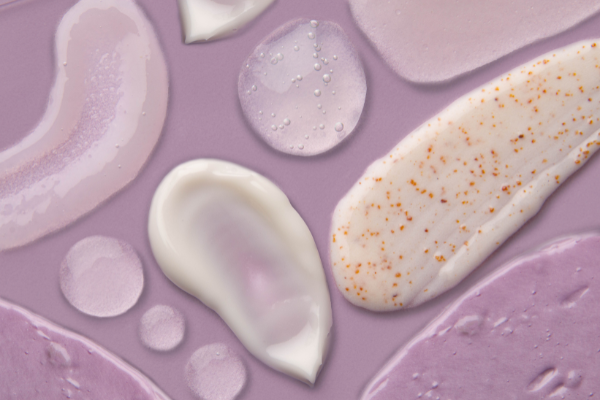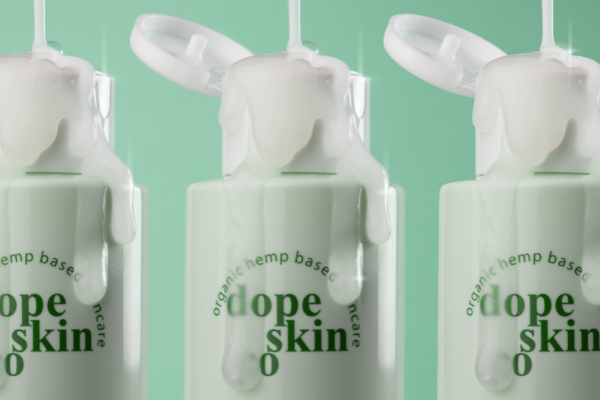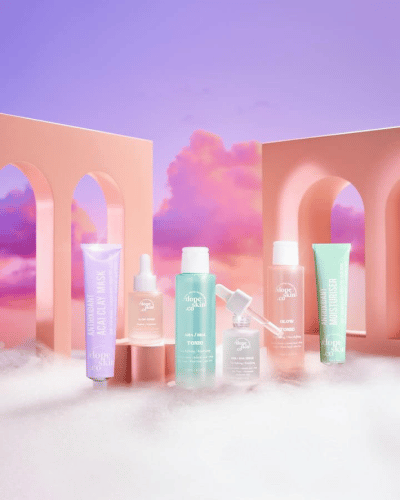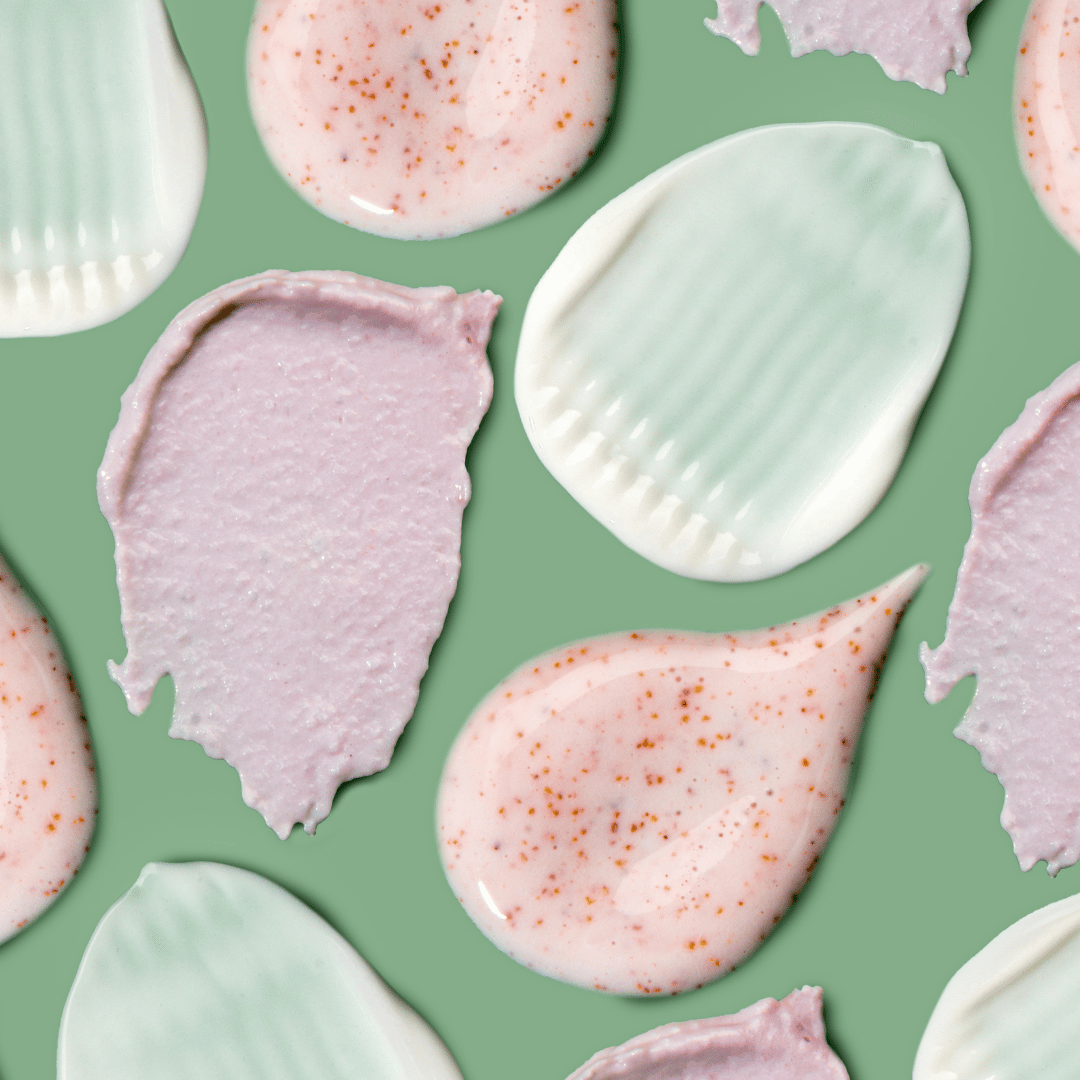
The Ultimate guide to Acne
The best skincare for acne-prone skin isn’t always easy to find. Acne has many causes, which means there are a lot of things that can go wrong in your skincare routine. Luckily, you have options. Clinical studies show that many natural ingredients have anti-inflammatory and anti-bacterial effects that can help control acne and protect against future breakouts. To make it easier to combat acne with natural skincare, we created our own line of products made from the highest quality plant-based ingredients.

What causes acne?
Hormones
Hormonal acne is a type of acne that occurs due to hormonal changes in your body. These include puberty, pregnancy, menstruation and the use of oral contraceptives. This type of acne is common in young people aged 15 to 25 years old.
However, hormonal acne can occur at any age and even in men.
The main symptom is blackheads and whiteheads (comedones). These are pore blockages by sebum, skin cells and bacteria that appear on the surface of the skin. They tend to be found on the face but can also occur on other areas of your body such as your back or chest.
Hormonal acne usually occurs in the following areas:
- On the jawline or chin - where there's more testosterone present in men than women
-
Around the mouth - where there's more oestrogen present in women than men.
Stress
Stress can cause acne by changing your hormone levels. Hormones are chemicals your body produces that control how your body works. For example, the hormone estrogen helps make women's bodies female.
When you're under stress, your body releases more of these hormones than it normally would. This can cause acne because high levels of these hormones increase the size of oil glands in the skin. The increased size of these glands blocks pores and causes them to produce more oil than usual. This excess oil mixes with dead skin cells and forms clogged pores (blackheads) on the surface of your skin where bacteria thrive — causing pimples to form.
Diet
Acne can be a pain in the neck… and face. If you're wondering if your diet is causing your acne woes, read on. A healthy diet is one of the best ways to manage acne and improve your overall health. A poor diet can make your skin look dull and lifeless, but some diets that are high in certain foods may cause breakouts and worsen existing acne.
Can skincare treat acne?
As you’ve probably realised, your skin is not a separate entity from the rest of your body. As such, it’s important to consider how external factors—like diet and lifestyle—can impact your wellness. Skincare products can be part of an overall approach to better living and health, but they shouldn't be relied on as a standalone cure for acne.

Which natural ingredient is best for acne?
Acne is a common skin condition that causes spots and pimples on the face, back and shoulders. It affects people of all ages and can be triggered by hormones or genetics.
There are lots of treatments available to help clear up acne, including creams, gels, tablets and lotions. Some acne treatments contain harsh chemicals that can irritate your skin or cause other side effects. Natural ingredients have fewer side effects and are often gentler on your skin.
Salicylic acid
Salicylic acid is a type of beta hydroxy acid (BHA). It's commonly used as an acne treatment and to remove dead skin cells. It exfoliates the top layer of skin, which helps unclog pores and reduce oil production.
How does salicylic acid work for acne?
Salicylic acid works by reducing inflammation, breaking down blackheads and whiteheads, and dissolving excess oil. This allows pore blockages to be removed from within the follicle, which can prevent new breakouts from forming on the surface of your skin.
Green Tea
Green tea is a healthy drink that may help lower cholesterol levels and prevent high blood pressure. But can it also help clear up acne?Green tea has been shown to reduce the number of free radicals in the body, which are harmful compounds that can damage cells and contribute to aging. These benefits have been attributed to green tea's high levels of antioxidants, which may help prevent cell damage from free radicals.
Niacinamide
Niacinamide is a vitamin B3 compound that can be used to treat acne. It's one of the most stable forms of vitamin B3, making it less likely to cause flushing and itching than other forms of this vitamin.
There are several potential benefits of using niacinamide for acne treatment:
It helps to prevent and reduce breakouts by reducing inflammation and blocking the production of sebum (oil) in your skin.
It can also help to control oil production by increasing the turnover rate (replacement rate) of cells in your skin. This means that less oil is produced and more cells are shed at a faster rate than normal, reducing clogged pores and improving overall skin texture.
Should you cleanse your skin twice day?
You know the drill: Cleanse your skin twice a day, right?
You've probably heard it a million times before. But what does it mean to cleanse your skin? How often should acne prone skin be washed? And can over cleansing cause acne?
Wash off all traces of makeup and other skin care products before going to bed. This is important because by failing to remove these products from your face, you're making it difficult for your body's natural oils to do their job of keeping your pores clear. If you don't wash them away at night, you'll end up with clogged pores that need extra attention when it comes time for treatment in the morning (and this will lead to overuse of antibiotics).
Many dermatologists believe that everyone needs some sort of facial wash—even if they don't have any visible signs of acne—because our faces are exposed on a daily basis through touch and sweat glands. So if anything could cause an inflammatory reaction down there (like dirt or pollen), then taking proactive steps now will save yourself some future pain later on down the road!

Does moisturiser help with acne?
If you've got acne, moisturiser is a great way to keep your skin hydrated. It'll help make sure that the oils in your face are balanced and the moisture's there for you to use. But does it help with acne? You bet!
If you're still having troubles with breakouts, it might be worth looking into some anti-inflammatory ingredients as well. These can reduce redness and irritation which may be contributing to the problem in the first place. There are also plenty of products out there designed specifically for people who have sensitive skins prone to breakouts; these generally aren't too strong but they do tend to work pretty well on their own or alongside other products such as salicylic acid.
Should I use a toner?
A toner is a great way to remove any remaining traces of dirt and oil left on your skin after cleansing. It’s also a good idea to use a toner if you have acne-prone skin, as it helps prevent dead cells from clogging pores and causing breakouts.
If you’re using products with salicylic acid (which we highly recommend), use that instead of the standard alcohol-based toners because these drying ingredients can irritate the skin and cause more breakouts.
Now that you know all about the best way to care for your skin if you’re prone to acne, it’s time to try some of these products out! There are so many ways that you can treat this condition. From natural ingredients like Green Tea and witch hazel, to products made right here at Dope Skin Co like the AHA/BHA Cleanser, Tonic and Serum, we have something for everyone.



